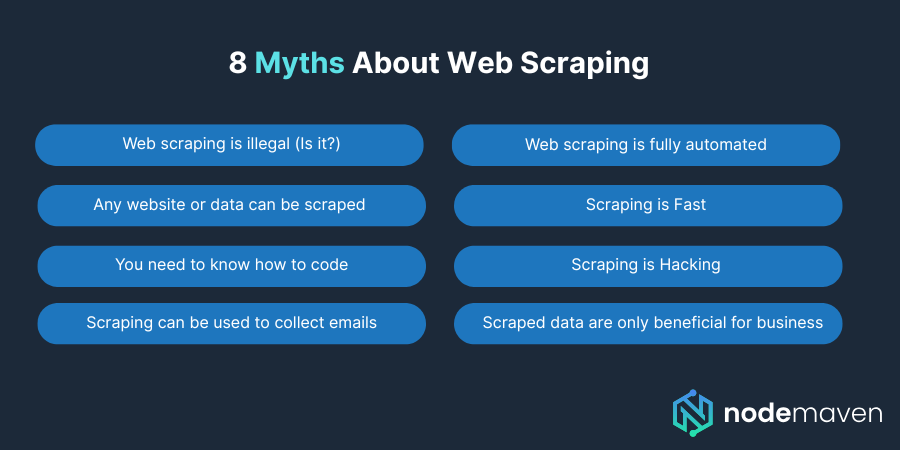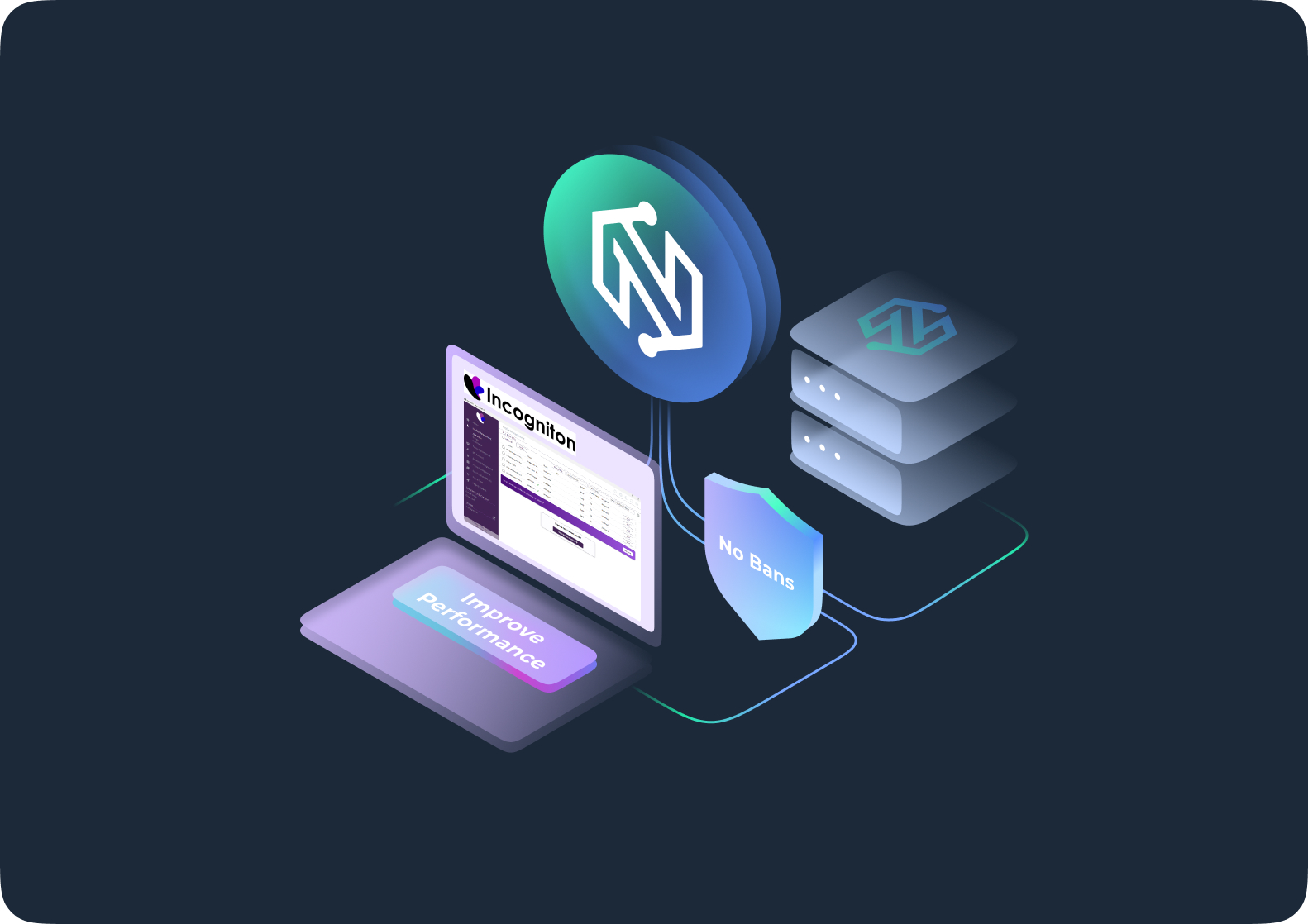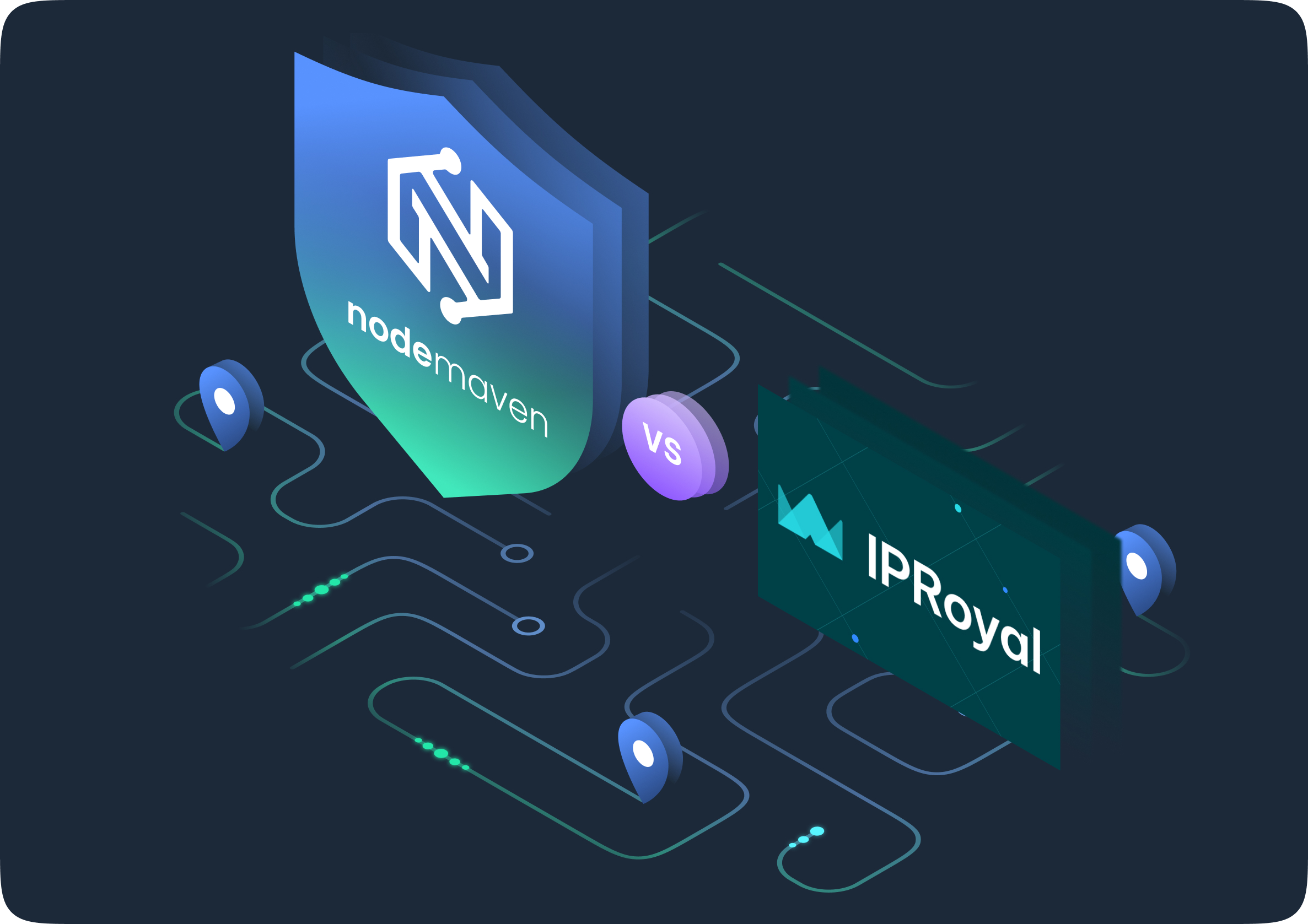Web scraping might sound like something out of a hacker movie, but in reality, it’s a tool that powers some of the most useful insights on the internet today.
From tracking competitor prices to finding leads for your next sales campaign, scrapers (yes, that’s what we call them) are behind the scenes helping businesses operate smarter.
In this guide, we’ll break down what scrapers are, how they work, what tools they use, and, most importantly, why they’re nearly useless without good proxies. Whether you’re just curious or planning your own scraping project, read on.
What Are Scrapers and Why Do They Matter?
At their core, scrapers are bots or scripts that extract data from websites automatically. Instead of copying and pasting information manually, scrapers automate the process, saving time and unlocking access to massive datasets.
Think of it like this: instead of hiring 50 interns to browse hundreds of websites and gather price data, a scraper does it in minutes, 24/7, without lunch breaks.
Key Industries That Use Scrapers
Scrapers aren’t just for techies or shady marketers. Legitimate businesses across industries rely on them to stay competitive. Here are some of the biggest players:
- E-commerce: For price monitoring, inventory checks, and tracking competitor product launches.
- Digital marketing: For gathering contact info, content inspiration, and lead data.
- Finance: To collect trading signals, economic data, and news sentiment analysis.
- Travel: Aggregators like Skyscanner scrape prices from hundreds of airline sites.
- Media & journalism: To monitor breaking news or social media trends in real-time.
Ethical and Legal Considerations in Web Scraping
Yes, web scraping is legal. But it’s complicated. The legality often hinges on how the data is collected and what it’s used for.
Key points to remember:
- Don’t scrape behind login walls unless you have permission.
- Always respect robots.txt (a file that tells scrapers what not to crawl).
- Avoid crashing websites with too many requests.
- Don’t resell scraped content as your own.
When done responsibly, scraping is a powerful, fair-use tool. Abuse it, and you risk IP bans, or worse, legal trouble.

Types of Scrapers and Their Applications
Scrapers come in all shapes and sizes. Some are simple scripts collecting email addresses, while others are sophisticated systems indexing millions of product listings or tracking global pricing trends.
The use cases for scrapers are diverse, and each application typically requires a different configuration, toolset, and strategy.
Whether you’re tracking your competitor’s SEO performance or aggregating leads for a sales campaign, the type of scraper you use will depend on the data you’re after and the obstacles in your path (think CAPTCHAs, login walls, or anti-bot systems).
In this section, we’ll break down the most common scraper applications and what makes them so impactful in modern digital operations.
Price Monitoring and E-commerce Intelligence
Online sellers need to stay competitive. Scrapers let them:
- Monitor competitors’ prices in real time.
- Track product availability and restocks.
- Scrap car prices across multiple marketplaces.
- Analyze reviews and feedback to understand customer sentiment.
Want to make sure your prices are always $0.01 cheaper than your biggest rival? You need a scraper.
Lead Generation and Contact Aggregation
Sales teams love scrapers. Why? Because they can find leads at scale. Here’s how they help:
- Scrape business directories for names, emails, and phone numbers.
- Extract LinkedIn profile data.
- Scan company websites for contact forms.
- Feed CRMs automatically with fresh prospects.
A well-placed scraper can outperform even the hungriest cold-calling team.
SEO and SERP Data Collection
SEO specialists are obsessed with rankings. Scrapers help them understand:
- Where they rank on Google for specific keywords.
- What featured snippets show up.
- What backlinks competitors are getting.
- What questions people are asking online (great for content ideation).
These SERP scrapers are critical for building effective SEO strategies.
Competitor and Market Research
Why guess what your competitors are doing when you can see it? With scrapers, you can:
- Monitor competitors’ blog updates.
- Track hiring trends on job boards.
- Follow social media mentions.
- Scrapen forums like Reddit and Quora for pain points.
In short, scrapers give you the intel you need to act fast and smart.
How Web Scraping Works: The Technical Flow
Before you start imagining lines of Python code crawling through the web like digital spiders, let’s demystify what actually happens when a scraper runs.
Scraping is a systematic, often automated process of requesting content from a web server, parsing that content, and then structuring it for analysis or reuse.
But it’s not just about fetching raw HTML. Scraping involves understanding how websites render content (especially those built with JavaScript), avoiding detection mechanisms, and choosing the right tools for the job.
From simple curl requests to full-fledged headless browsers, this section walks through the essential flow of how scrapers operate, the tools that power them, and the hurdles they face.
From HTTP Requests to DOM Parsing
At the heart of scraping is the HTTP request. Your scraper sends a request to a website, just like your browser does, and receives the HTML response.
From there, it parses the HTML (aka, breaks it apart) and extracts the information it needs. This might include:
- Page titles
- Product prices
- Article content
- Images or metadata
The key is to identify the structure of the page, called the DOM (Document Object Model), and navigate it like a tree.
Scraping Tools and Frameworks
Not a coder? No worries. There are scraping tools for all skill levels. Here are some big ones:
- BeautifulSoup (Python): Simple and lightweight HTML parser.
- Scrapy (Python): A powerful scraping framework for large projects.
- Puppeteer (Node.js): Automates headless Chrome—great for dynamic websites.
- Selenium: Simulates a real browser—perfect for websites that rely on JavaScript.
And don’t forget GUI tools like Octoparse or ParseHub if you want a no-code approach.
Challenges in Scraping: CAPTCHAs, Bot Protection, and IP Blocking
Of course, websites don’t want you scraping their data, at least not all the time. So they fight back.
Common defenses include:
- CAPTCHAs: Annoying image puzzles to prove you’re human.
- JavaScript challenges: Trick scrapers that can’t execute scripts.
- IP bans: Blocking your IP address after suspicious activity.
Which brings us to the next topic…
Why Scrapers Need Proxies to Survive and Scale
Scrapers without proxies are like cars without wheels. You might go somewhere, but you won’t get far.
Here’s why proxies matter:
- Prevent IP bans: Rotate through thousands of IPs to avoid detection.
- Bypass geo-restrictions: Want to scrape results from Google US, UK, or Japan? Use location-targeted proxies.
- Boost scraping speed: With multiple proxies, you can scrape in parallel.
- Mimic real users: Residential and mobile proxies make it look like traffic is coming from real people.
A good proxy scraper setup means fewer bans, more data, and better ROI.
How NodeMaven Helps Scrapers Succeed at Scale
Web scraping isn’t just about building a script and hitting “run.” It’s about staying undetected, beating anti-bot systems, and making sure performance doesn’t crumble as you scale.
That’s where NodeMaven steps in. Whether you’re scraping product prices, SERP data, or social signals, NodeMaven gives your scraper the anonymity, stability, and customization it needs to thrive.
Here’s how NodeMaven helps scrapers win:
- High-quality IPs only: Our proprietary IP Quality Filter make sure scrapers get clean, undetectable residential proxies for maximum success rates.
- Real-time geo targeting: Target specific countries, cities, or even ISPs to extract location-sensitive data with precision.
- Up to 24-hour sticky sessions: Maintain persistent sessions for scraping logged-in content or capturing multi-step user flows.
- Flexible pricing models: Whether you’re just testing or scraping at scale, pay-as-you-go options and volume discounts are available.
- Static residential proxies: Perfect for scrapers that need stable, long-term identity—ideal for login scraping, account-based tasks, or monitoring over time.
- Rotating residential proxies: Best for scrapers that need high IP diversity, randomization, and the ability to make high-volume, low-footprint requests.
- Scraping browser integration: With built-in support for stealth browsing and Puppeteer/Selenium compatibility, NodeMaven enables automation at scale without detection.
Whether you’re scraping product listings, tracking ad campaigns, or extracting leads, NodeMaven helps you do it faster, safer, and at scale.
Scrapers are here to stay, and they’re getting smarter by the day. If you want to keep up (or stay ahead), don’t just build a scraper. Build one backed by the right infrastructure.
And when it comes to infrastructure, NodeMaven’s proxies have your back.
Want to test them for your scraper project? Contact our team or sign up now.


